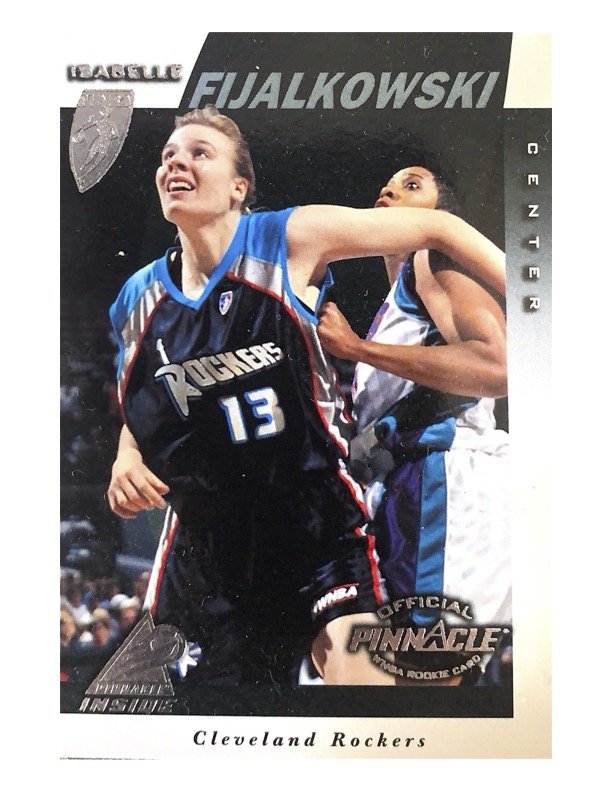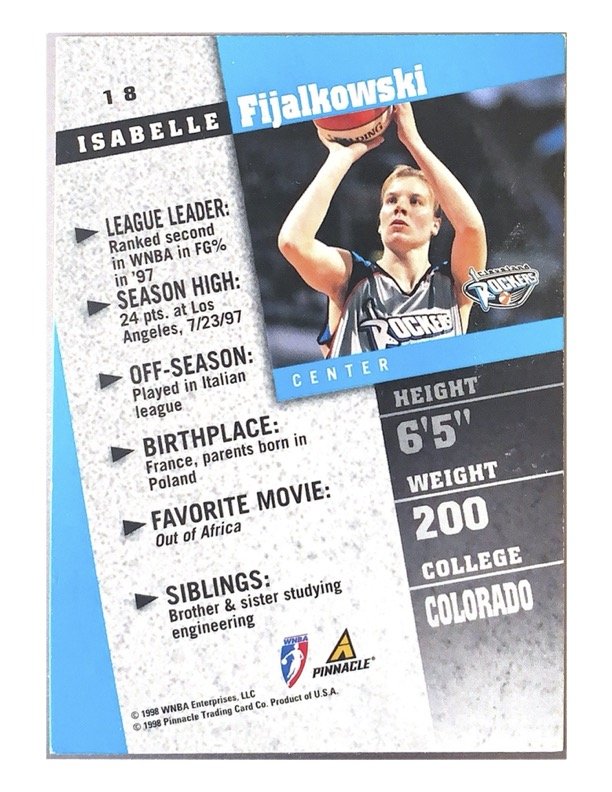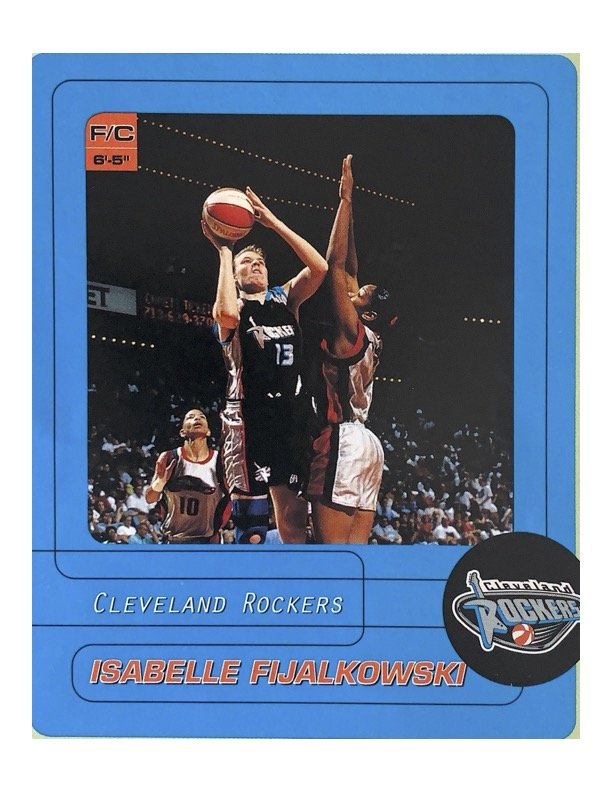🏀0️⃣2️⃣1️⃣ Isabelle Fijalkowski
Isabelle Fijalkowski. Photo: Bellenger/IS/FFBB
Meet Isabelle Fijalkowski, the 2001 European Champion and 1999 Vice European Champion who in 1997 was one of the first Frenchwomen to play in the WNBA.
Born May 23, 1972 in Clermont-Ferrand, Fijalkowski grew up in one of the centers of women’s basketball. It was an era in which Clermont Université Club, a club that featured national team stars Jacky Chazalon, Irène Guidotti, and Élisabeth Riffiod, dominated French and European competition. But Fijalkowski’s parents, who immigrated from Poland in the 1970s, weren’t that immersed in the game; as a result, she wasn’t much of a fan. Still, they encouraged her to play as she was so tall, which is how 12-year-old Fijalkowski began to play with CUC’s rival, AS Montferrand.
Isabelle’s Story
At the time, AS Montferrand boasted a youth formation center, designed to develop the club’s rising generation of talent. At age 16, Fijalkowski made her debut playing with the senior team; two years later she suited up for her first match with Les Bleues, a friendly against Spain. For the next several years, while playing with the national team, she got to know more about the experiences of two teammates, Paoline Ekambi and Yannick Souvré, in the United States’ NCAA. And the idea of having her own American basketball experience took root.
Photo courtesy of Isabelle Fijalkowski.
That’s how 22-year-old Fijalkowski arrived at Boulder, Colorado, for Fall semester 1994. It was a cultural shock in many ways and she rapidly found that the English she learned back home wasn’t the sort of everyday parlance used around campus. “It was very different,” she said of the acculturation process.
The basketball, however, was a common language. And her new teammates saw that Fijalkowski was ready to put in the effort. “They saw that I could help them as a team because there weren’t any other players with my profile,” she said. “Thus they were delighted.”
The 1994-95 Colorado Buffalos. Photo courtesy of Isabelle Fijalkowski.
It was a magical season as the Buffalos achieved one of their best results, finishing 30-3 overall and 14-0 in the Big Eight. At the March 1995 NCAA women’s basketball tournament, the team showed their mettle as they marched through the brackets with wins over Holy Cross, Southwest Missouri State, and George Washington. The team fell to Georgia, 79-82, in the Elite Eight, despite Fijalkowski’s valiant efforts (35 points, 9 rebounds, 4 assists).
The Sports Diplomacy Connection
Although Fijalkowski continued to play for Les Bleues, and thus served as an official sports ambassador for France on the court while competing for them, her time in the United States can be understood through the informal sports diplomacy prism. Not just the cultural exchanges she engaged in as part of everyday life on campus, but also the two-way knowledge and technical exchanges that occurred.
The NCAA experience strengthened her game. And she was impressed by the fact that entire coaching staffs were composed of female coaches, something that was more rare back home at the time. But she also transmitted her hard-won lessons earned from playing against adults back home to her teammates. As well as her work ethic.



Although she returned to play professionally in France after the academic year ended, her American journey was not over. Fijalkowski was selected second in the February 1997 WNBA draft by the Cleveland Rockers, thanks to input from her University of Colorado coach Ceal Barry as well as the visibility she gained from her season with the Buffalos. But it was still an adventure. The WNBA was new, and there were anxieties that it would not work out in the end.
“I was part of this adventure and I’m very content to have been able to play in a professional championship…I adored being part of it.”
The French center became a Big Five mainstay and quickly proved to be one of the Rockers’ offensive weapons. She averaged 11.9 points per game, notching roughly 23.4% of the team’s overall points that season. It was a record she improved upon during her second season.
Throughout her two WNBA seasons, Fijalkowski brought leadership in teamwork and a willingness to find solutions to on-court problems to the mix. In doing so, she wanted to show that Frenchwomen knew how to and could excel in the game.
“I wanted to show that it’s playing basketball. We can bring things and that in France, we know how to play basketball. We are taught to play basketball. At the time, we did not yet have great European results, but I wanted to show that in Europe, basketball also counts and that we can be different but bring complementary things.”
Fijalkowski serves as president of the Club des Internationaux de Basket, bridging generations of Les Bleus and Les Bleues. Follow them on Facebook.
Mapping the Connection
From Clermont-Ferrand, France to Boulder, Colorado
Further Reading/Resources
[F] Interview with the author, October 4, 2021.
[E] “Magical Season: A Reporter Remembers 1994-95 CU Women’s Team,” University of Colorado Athletics, accessed January 14, 2022, https://cubuffs.com/news/2020/2/15/womens-basketball-magical-season-a-reporter-remembers-1994-95-cu-womens-team.aspx.
[F] Benjamin Henry, Made in France: Ces Français à l’assaut du Rêve Américain (Hugo Sport, 2021).




